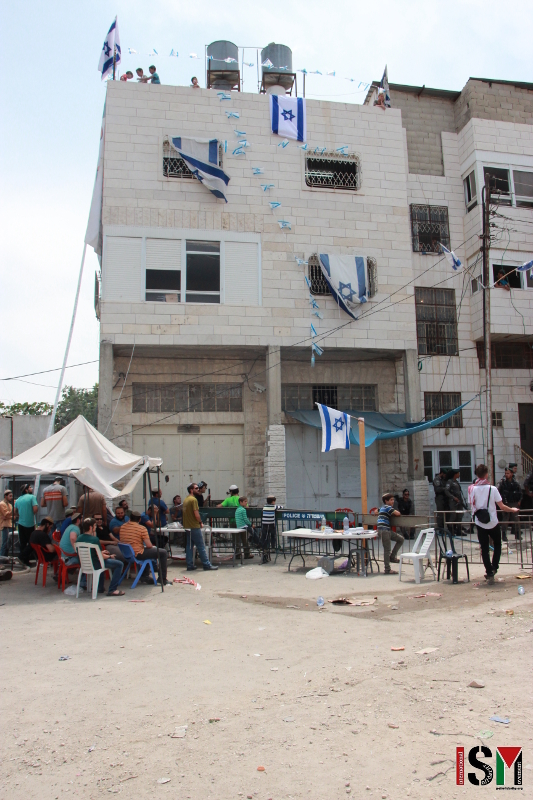Tag: Settlers
-
Settlers illegally occupy a Palestinian house in Hebron
6th August 2017 | International Solidarity Movement, al-Khalil team | Hebron, occupied Palestine On Tuesday 25th of July some 50 Israeli settlers illegally occupied a Palestinian house in illegal occupied Al-Khalil (Hebron) in H2 in an attempt to take control of the house. The settlers have stayed in the Palestinian building for six days, protected…
-
Settler attack towards Palestinians in occupied al-Khalil (Hebron) [VIDEO]
4th August 2017 | International Solidarity Movement, al-Khalil team | Hebron, occupied Palestine Friday 4th of August after the Shabbat prayers (Kabbalat Shabbat), approximately 40/50 settlers attacked Palestinians on Prayer Road by using verbal violence and throwing stones, 3 Palestinians were injured due to the stones thrown by the settlers. The Israeli forces forcefully dispersed…
-
8th Kite Festival in Burin
18th July 2017 | International Solidarity Movement, al-Khalil team | Burin, occupied Nablus At the beginning of July the local committee of Burin invited to the town`s 8th Kite Festival of the City. The festival is kind of a tradition for this town, but has not taken place for the last three years, because the…


![Settler attack towards Palestinians in occupied al-Khalil (Hebron) [VIDEO]](https://palsolidarity.org/wp-content/uploads/2017/08/DSC_2394brokenarm.jpg)
